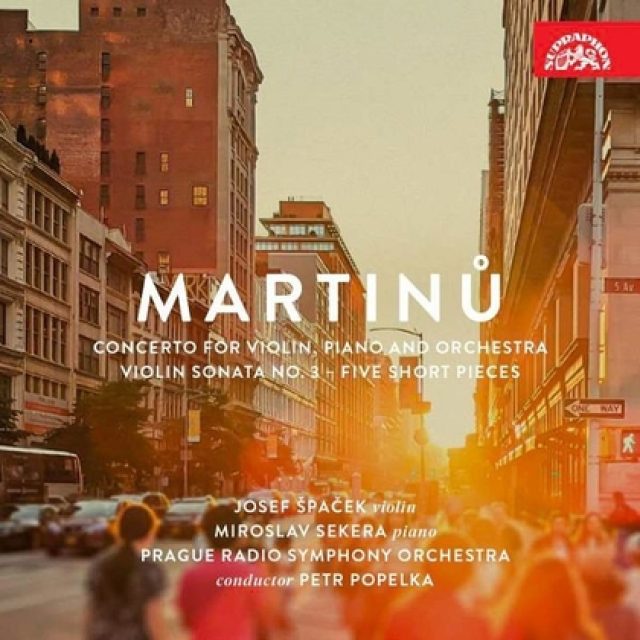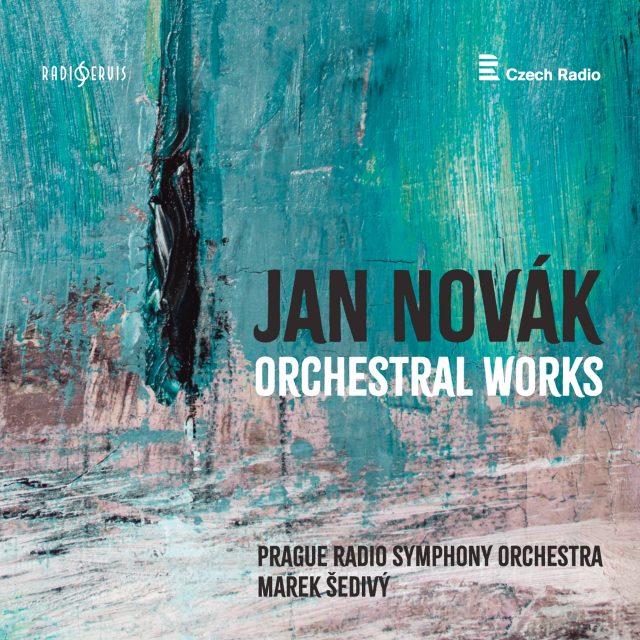REVIEW: Alexander Liebreich and PRSO perform like well-drilled tandem in extraordinary Sunday concert
As anticipated, Sunday’s extraordinary concert by the Prague Radio Symphony Orchestra met with great interest on the part of music-lovers. While the orchestra’s season-ticket holders’ concerts continue to be of high quality, Sunday’s concert at the Rudolfinum’s Dvořák Hall was unique not only in the choice of protagonists but also in its message.
The evening was introduced by the director general of Czech Radio, René Zavoral, and the Ambassador of the Federal Republic of Germany in Prague, His Excellency Christoph Israng, as an important part of the Echoes of the Czech-German Cultural Spring 2017, a unique arts project boasting over 100 events built on cooperation between Czech and German artists.
The selection of composer and soloist gave the whole evening the hallmark of uniqueness. As a matter of fact, the official title was An Extraordinary Concert with Alexander Liebreich, the artistic director of the Polish National Radio Symphony Orchestra in Katowice. Naturally he has an overt empathy toward radio orchestras and that was also apparent in his approach to our PRSO.
From the opening A Study for Strings by Pavel Haas (1899–1944) Alexander Liebreich drew on the experience gained as principal conductor and artistic director of the Munich Chamber Orchestra (2006–2016). We usually hear this 10-minute, musically powerful piece rendered by small chamber orchestras, where it loses much of its originally conceived intensity of sound. On Sunday we had the opportunity to apprehend its power when performed by a full large orchestra. It was an experience. Liebreich worked with the PRSO as with a small chamber orchestra in which, in the smaller line-up, every player and every note is crucial. Naturally when he succeeds in unifying a larger ensemble using the same method of preparation the effect is extraordinary.
However, the pinnacle of the first half of the concert was the Concerto for Cello and Orchestra No. 1 in E-flat major, op. 107 by Dmitri Shostakovich. The soloist Alban Gerhardt exceeded many of the expectations that accompany this contemporary star of German classical music. From their friendly gestures it was clear that the compatriots knew one another well and were genuinely enjoying the performance. It must be added, however, that they evidently also enjoyed the concert thanks to the wonderful cooperation with the orchestra.
Shostakovich’s concert is extraordinarily demanding, not only for soloists but for the orchestra (incidentally, the concerto was written especially for the legendary Mstislav Rostropovich…).
The brass section in particular must be singled out for praise as exacting solos run through the entire concerto, with the most exposed in this regard the French horn. Jana Švadlenková (deputy leader of the French horn section) delivered the major solo in an utterly captivating manner and it’s no wonder that at the close of the concert Alban Gerhardt had his bouquet sent to the players in gratitude.
Gerhardt began his career in genuinely major style in 1991 – as soloist of the Berlin Philharmonic. He is one of those artists who is not tired by demanding concerts but manages to draw fresh energy from the profound musical experience. The tempo and energy with which Gerhardt performed the opening bars of the first movement were extraordinary. It was if an energy bomb had gone off on stage…
During the long first movement, when the soloist literally plays in one go, Gerhardt did not ease off in either tempo or application. He has a strong nasal tone that was carried above the entire orchestra. This is made possible not only by his wonderful virtuoso instrument, produced by Matteo Goffriller in 1710, but above all by his style of playing, which makes maximum usage of the weight of his right hand in combination with the strength of his fingers in the creation of tones. Sequences of difficult double-stops resounded in gorgeously pure intonation.
The bubbling energy in the first movement made the contrast with the melancholic second movement all the greater, when in lengthy, stretched-out melodies Gerhardt literally performed sorcery with the sound of the cello, fully savouring the acoustics of the Dvořák Hall. The sensitivity of conductor and orchestra literally sent shivers down the spine of the audience.
The overall atmosphere was underlined also by the wonderfully played orchestral interlude when Liebreich commanded the strings through the kind of fantastic pianissimo that can only be heard from first-rate orchestras. Here also his detailed work with the string section was put to fabulous use – Liebreich worked with wonderfully constructed phrases like an architect, shaping a beautiful arch of sound. The exacting solo was followed by an attacca into the third movement, in which Alban Gerhardt reaffirmed his unique technical mastery on a difficult part.
The dramaturgical climax came with Johannes Brahms’ Symphony No. 4 in E minor, op. 98. Alexander Liebreich’s conducting style is from the classical school and his technique and general approach in front of an orchestra brings to mind the legendary Carlos Kleiber.
However, the overall approach was interesting. In renditions of this masterpiece we frequently hear almost an excess of majesty, thanks in the main to conductors, and Liebriech demonstrated his own mastery and distinctiveness.
He conducted Brahms’ grand symphony with great application, albeit with moderation and softness, as if he constantly held back and allowed room for the music itself. However, he managed to perfectly transmit his vision to the players with immaculate gestures. Indeed, his conducting style is very legible and every orchestra would have to play well with such clear leadership. The coordination was commendable and the orchestra sounded very compact.
Following sober renditions of the first and second movements, the energetic Scherzo sounded by contrast genuinely wild and Liebreich maintained the brilliance and drama until the very finale. The enormous applause was deserved. Alexander Liebreich succeeded through precise work in bringing out all of the PRSO’s quality and his satisfied expression suggested he felt the work with the orchestra had gone very well.
The new principal conductor of the PRSO has as yet not been announced and the orchestra’s management will surely select a personality who will not only lead it but above all help it develop. I don’t think I would be alone in leaving Sunday’s concert with the thought that the PRSO would do very well indeed with this conductor.






